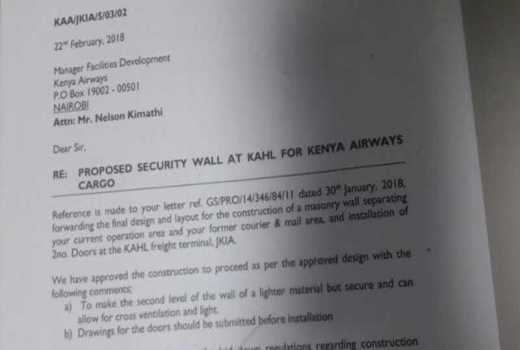×
The Standard e-Paper
Kenya’s Boldest Voice

A cargo operator has been granted access to the airside at Jomo Kenyatta International Airport (JKIA) in Nairobi under controversial circumstances, the Sunday Standard can report.
The decision, we understand, may have been made in order to keep miraa exports flowing to Somalia just two weeks after an aircraft was grounded for flouting flight security rules.